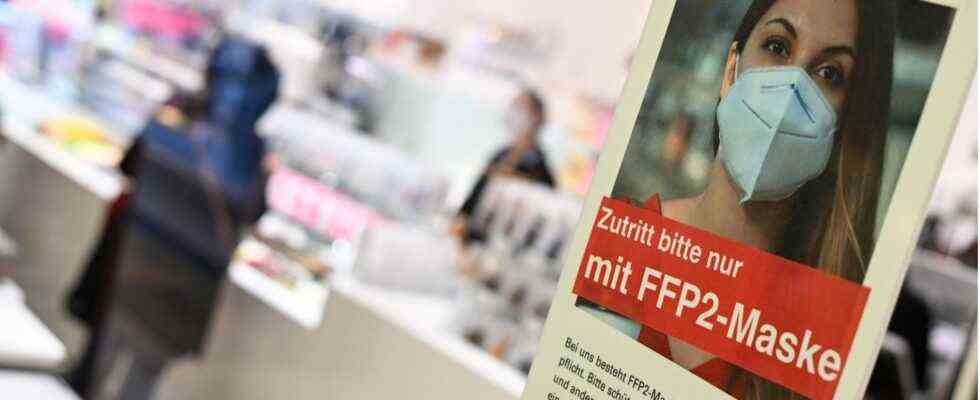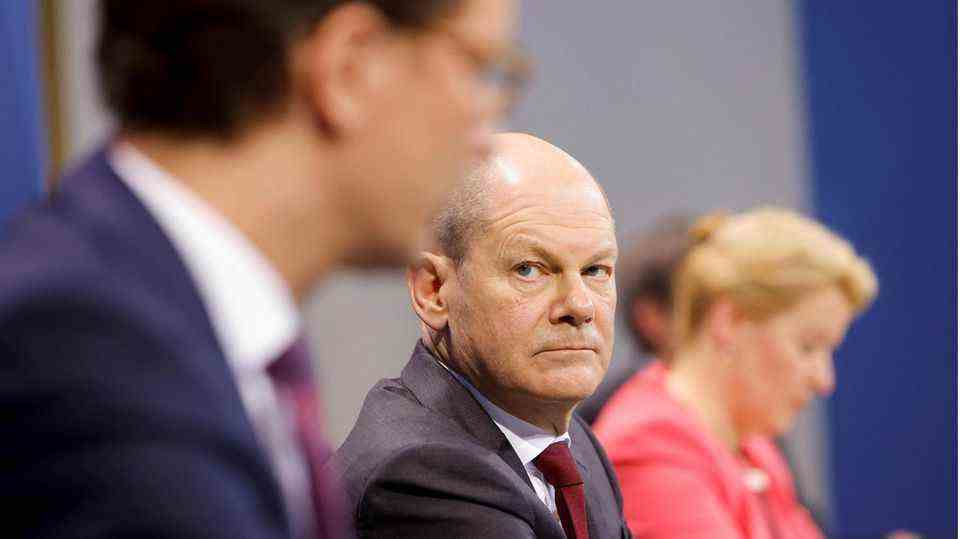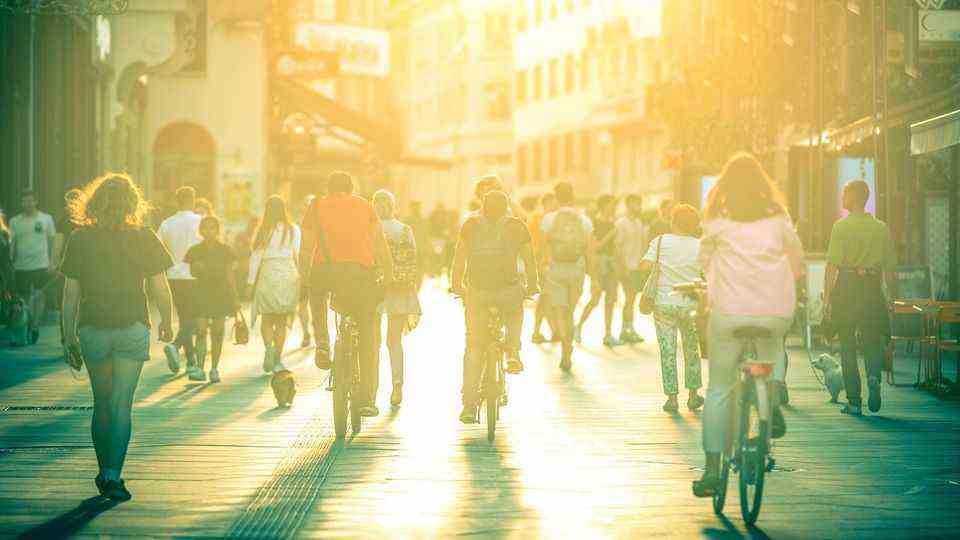corona pandemic
Dancing, sports, shopping: An overview of the relaxation of the corona measures until March 20th
The mask requirement will probably remain beyond Freedom Day on March 20th.
© Tobias Hase / DPA
The heads of government of the federal and state governments have decided to relax the corona measures. Most of the restrictions are to be abolished in three stages from March 20th. The overview.
As a first step, contact restrictions for those who have been vaccinated and those who have recovered are to be lifted in the private sphere. Access restrictions to retail are to be lifted – with the exception of the mask requirement. In a second step, from March 4th, access to gastronomy will be made possible for vaccinated, recovered and people with daily tests. In a third step, all more far-reaching protective measures – including the home office obligation – will no longer apply from March 20th.
The date results from the Infection Protection Act: Because this currently only allows the protective measures for a limited period until March 19th. Certain regulations, such as wearing masks on buses and trains, are to be retained after this deadline, for which the law still has to be changed.
When the individual restrictions will be lifted or reduced by then depends on the federal state and how quickly the corresponding Corona Ordinance is changed. Some countries have already taken steps.
Step 1:
To meet: Those who have been vaccinated and those who have recovered should be allowed to meet again without restrictions. The current limit of ten people is no longer applicable. If there is only one non-vaccinated person, the current regulation will remain in place until March 19: Meetings are allowed with a maximum of two people from another household.
Shopping: Access restrictions for the unvaccinated when shopping will be lifted where they still apply. As in the supermarket, everyone should be able to shop in all stores without any proof. The mask requirement remains – whether FFP2 or surgical masks are decided by the countries.
Level 2:
Restaurants/Hotels: Even those who are not vaccinated should be allowed to go back to the restaurant from March 4th. Hotels should then also be open to everyone again. The prerequisite is the presentation of proof of vaccination or recovery or a negative test (3G). However, the situation in the clinics should be taken into account in this opening step.
To dance: Discotheques and clubs are allowed to reopen, but initially only for those who have recovered and those who have been vaccinated with an additional test or booster vaccination (2G plus).
Stadiums/Concerts: The number of spectators allowed will be increased. Stadiums may be filled to a maximum of three quarters, but with a maximum of 25,000 people. Inside, it can be 60 percent occupancy but a maximum of 6000 spectators. Access is initially limited to those who have recovered and those who have been vaccinated.
Level 3:
Deadline March 20: From then on, “all more extensive protective measures should be dropped if the situation in the hospitals allows it”. This is also the current legal situation according to the Infection Protection Act: Numerous measures such as the obligation to wear masks, restrictions on access to events, restaurants or means of transport and the presentation of vaccination, convalescence or test certificates may only be applied until March 19th. Maximum spectator limits or upper limits for private meetings, whether vaccinated or not, would also have to be dropped after this date. The obligation for employers to offer home office is also eliminated.
Europe: These popular travel destinations are relaxing their corona rules
14 images
“Basic protection”: However, Scholz and the Prime Ministers agree that it should still be possible to at least prescribe masks in buses, trains, indoor areas or schools and that tests may be required in “certain areas” and proof of vaccination, recovery and tests may be checked. According to the federal-state decision, a “legislative procedure in the federal government is being prepared”. In the course of this legislation, it will become clear in the coming weeks which corona measures will still be possible after March 20th.
compulsory vaccination: Chancellor Olaf Scholz (SPD) and the prime ministers of the federal states stand by their assessment that general vaccination is necessary in Germany, but the Bundestag will decide on this. When it comes to the controversial issue of facility-related vaccination requirements, it is said that the health authorities have a discretion in the implementation. There will not be immediate, automatic, nationwide entry bans for unvaccinated employees.
recovered status: The duration of the recovered status should no longer be determined by the Robert Koch Institute in the future. The transfer of this competence to the RKI caused a lot of criticism after it surprisingly reduced the status from six to three months.
High risk areas: Because the incidences have climbed to completely different heights worldwide due to Omicron, the classification of high-risk areas is to be changed. At the moment, unvaccinated people still have to be quarantined after traveling to countries with an incidence of 100 or more. This has particular consequences for families with unvaccinated children.



